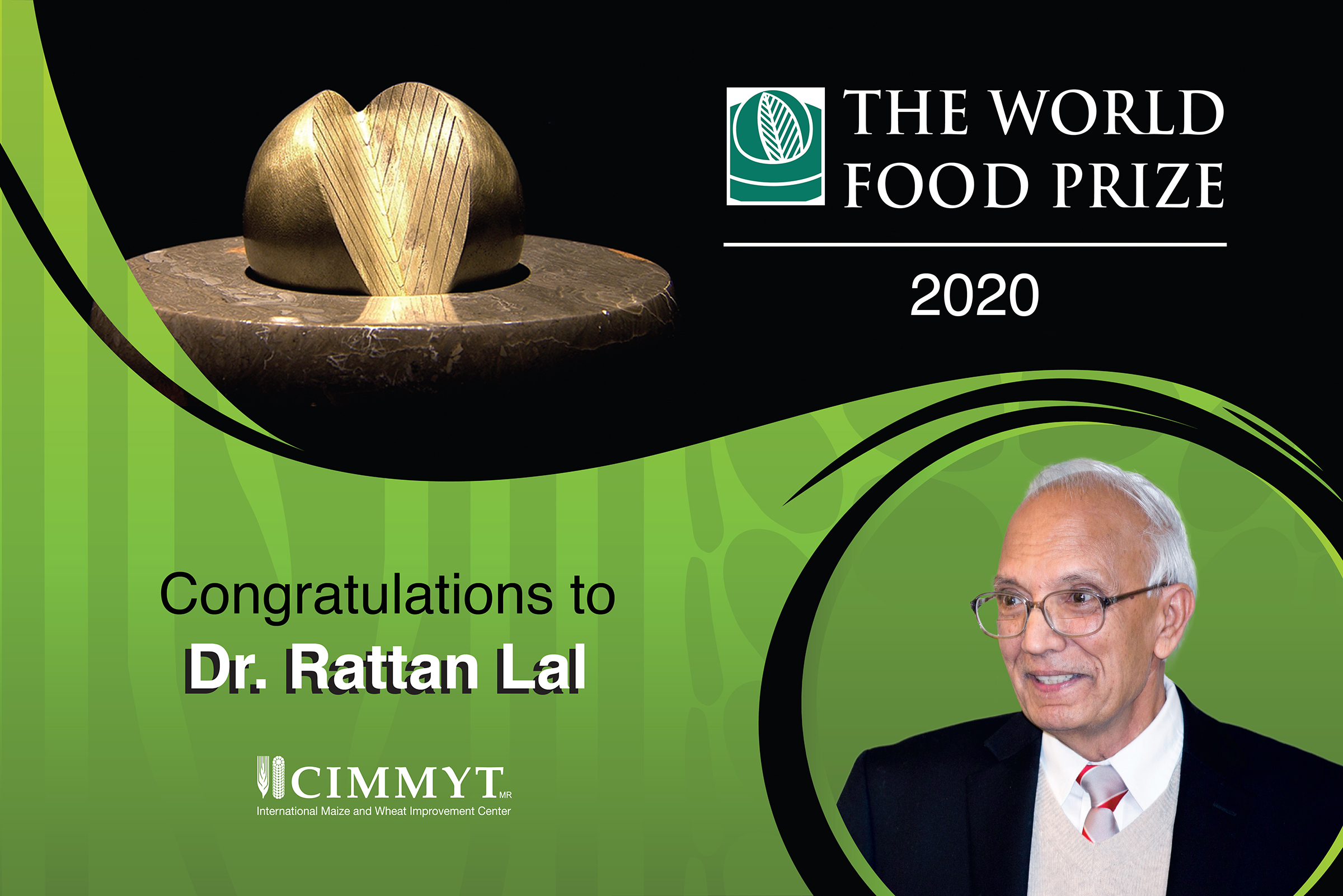“Can we sustainably feed the nine to ten billion people in our planet in 30 years?” asked Kenneth M. Quinn, president of the World Food Prize Foundation. “This question becomes even more challenging with two current game changers: conflict and climate change.”
Food and agriculture experts met in Des Moines, Iowa, to discuss these issues at the Borlaug Dialogue and awarding of the 2019 World Food Prize.
The focus has shifted over the last few years from food to food systems, now including health and nutrition. “We need an integrated agri-food systems approach for food security, nutrition, nature conservation and human security,” said Bram Govaerts, director of the Integrated Development program at the International Maize and Wheat Improvement Center (CIMMYT).
Speakers agreed that to meet the current challenges of nutrition and climate change, we need a transformation of the global food system. “We have something very positive — this narrative of food system transformation,” said Ruben Echeverría, Director General of the International Center for Tropical Agriculture (CIAT).
In the discussions, speakers highlighted several areas that must be taken into consideration in this transformation.
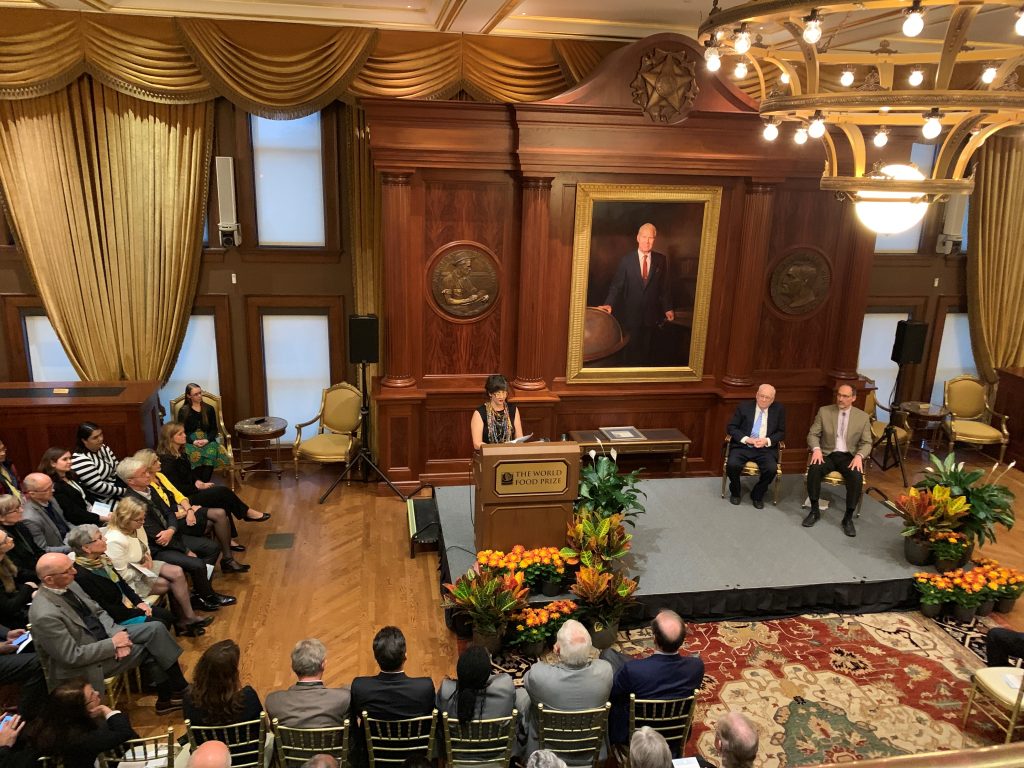
Food security for peace and development
The theme of this year’s Borlaug Dialogue was “Pax Agricultura: Peace through agriculture.” Panels addressed the interconnected issues of food security, conflict and development.
In the keynote address, USAID Administrator Mark Green issued a call to action and challenged participants “to take on the food and economic insecurity issues that are emerging from this era’s unprecedented levels of displacement and forced migration.” Ambassadors, ministers and development experts gave examples of the interdependence of agriculture and peace, how droughts and floods could create conflict in a country, and how peace can be rebuilt through agriculture.
“Agriculture could root out the insurgency better than anything we did,” said Quinn about the Khmer Rouge surrender in Cambodia, where he served as an ambassador.
In the 1994 genocide in Rwanda, more than 1 million people died in 100 days. Geraldine Mukeshimana, Rwanda’s minister of Agriculture and Animal Resources, explained that in the country’s rebuilding process, all policies centered on agriculture.
“Almost no country has come out of poverty without an agricultural transformation,” said Rodger Voorhies, president of Global Growth and Opportunity at the Bill & Melinda Gates Foundation, in a fireside chat with 2009 World Food Prize Laureate Gebisa Ejera.
Agriculture is vital because without food, we cannot build institutions, processes or economies. “You cannot talk about human rights if you don’t have any food in your stomach,” said Chanthol Sun, Cambodia’s minister of Public Works and Transportation.
Josette Sheeran, president and CEO of Asia Society, echoed this thought, “Nothing is more important to human stability than access to food.”
In a luncheon keynote, Víctor M. Villalobos, Mexico’s Secretary of Agriculture and Rural Development, spoke about CIMMYT, the MasAgro project, and the need to improve food systems and agriculture to fight violence and forced migration. “Agriculture, prosperity and peace are inextricably linked together.”
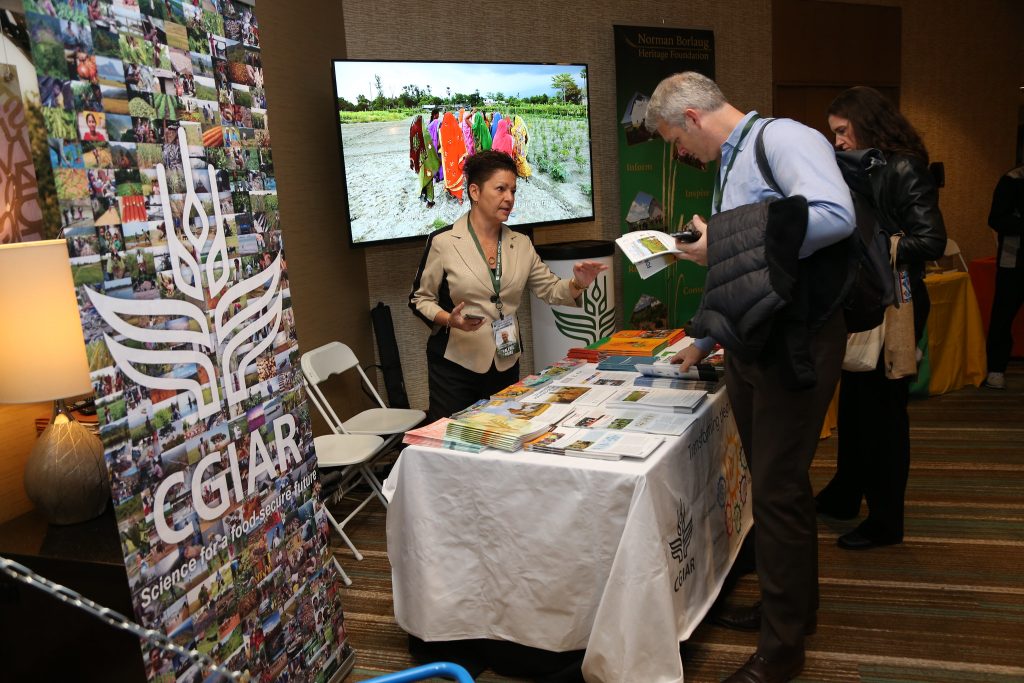
How to make technological innovations work
Innovations and technology can support a global food system transformation and help to achieve the Sustainable Development Goals.
In a panel on food security in the next decade, speakers shared the agricultural technologies they are excited about: data, gene editing, synthetic biology, data science and precision farming.
Josephine Okot, managing director of Victoria Seeds Ltd said, “We must have mechanization.” She described the fact that Ugandan women farmers still rely on hand tools as a “disgrace to humanity.”
The CGIAR Research Program on Climate Change, Agriculture and Food Security (CCAFS) organized a session where panelists discussed how to realize a transformation in food systems through next generation technologies, highlighting the role regulatory frameworks and policies play in the adoption of new technologies.
Making innovations work is about more than developing the product. “It takes a lot more than just a good seed to get a farmer to use it,” said 2019 World Food Prize Laureate Simon Groot. “It includes good distribution, good marketing, good training, etcetera.”
Technology adoption requires a human emphasis and cultural element in addition to technology development.
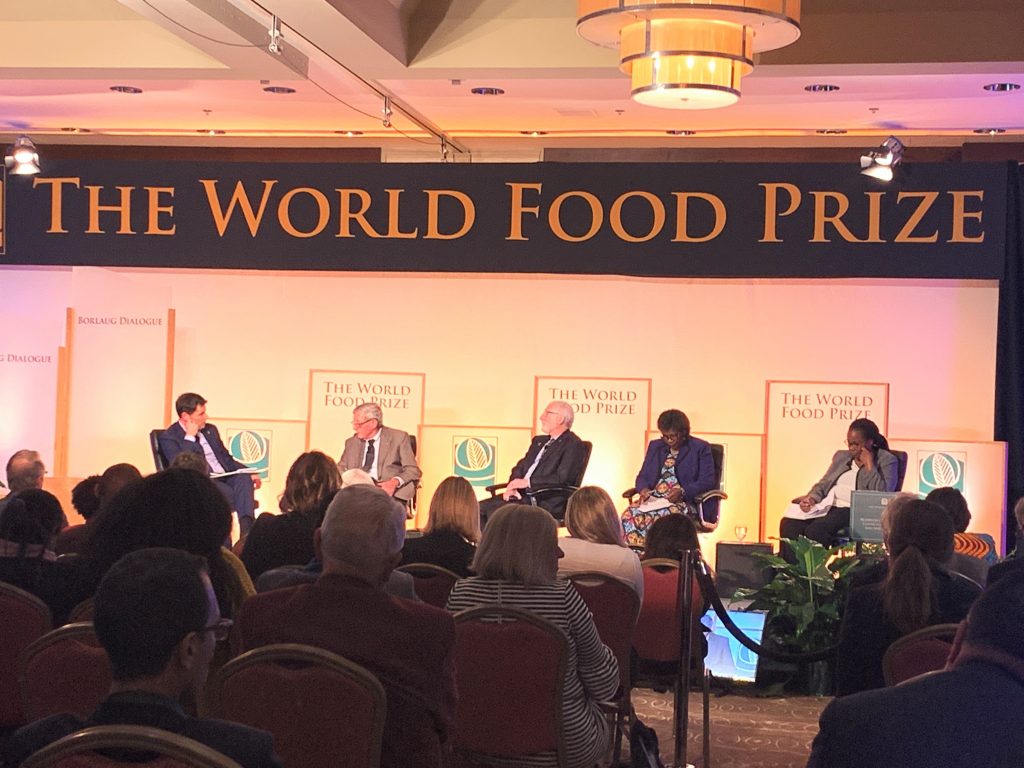
Breeding demand-driven crops for all
“The real enemy of farmers is lousy seeds,” said Simon Groot in his speech after receiving the World Food Prize.
CGIAR took the occasion of the World Food Prize to launch a new initiative, Crops to End Hunger. “We are looking for big solutions at CGIAR. Crops to End Hunger is one of them,” said CIMMYT Director General Martin Kropff. This program aims to meet the food, nutrition and income needs of producers and consumers, respond to market demands and increase resilience to challenges of the climate crisis.
“CGIAR released 417 new varieties last year. However, we can do more. Crops to End Hunger will rapidly excel breeding cycles,” said Elwyn Grainger-Jones, CGIAR Executive Director.
Felister Makini, deputy director general for Crops at Kenya Agricultural & Livestock Research Organization (KALRO), explained that focusing on the end users is what will have real impact. “It is important to develop technologies that are demand-driven so that farmers want to grow them and consumers want to buy and eat them.”
In a session to unpack the Crops to End Hunger initiative hosted by Corteva Agriscience and CGIAR, Marco Ferroni, Chair of the CGIAR System Management Board, said that CGIAR is shifting toward a more demand-driven agenda for plant breeding, where markets dictate what the research priorities should be.
“We must consider the human aspect in breeding,” said Michael Quinn, Director of the CGIAR Excellence in Breeding Platform (EiB). “This is where success will really come.”
Panelists discussed gender-conscious breeding, or taking both women and men’s desired traits into account.
The theme of gender was also emphasized by 2019 Norman Borlaug Field Award winner Hale Ann Tufan. She asked the Dialogue attendees to question gender biases and “not only to ‘take it to the farmer’ but take it to all farmers.”
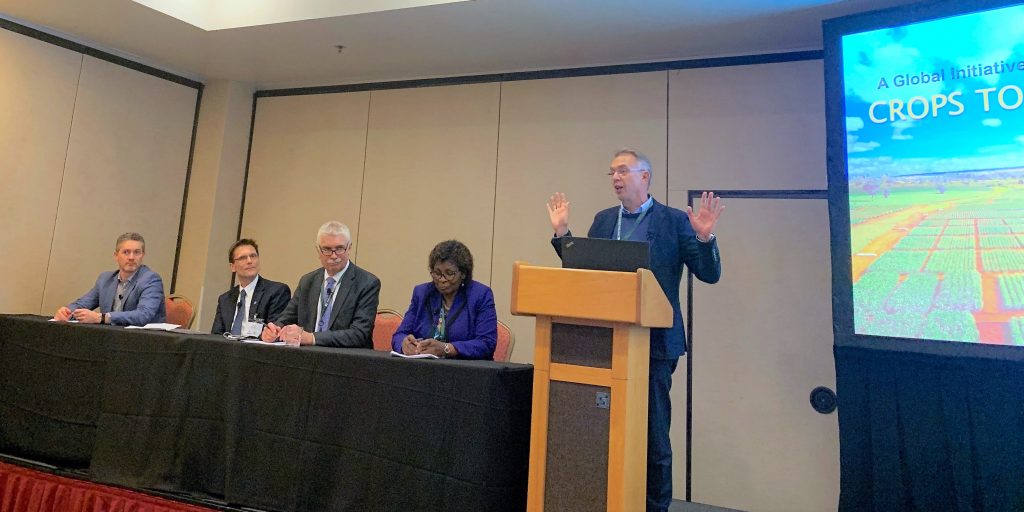
Cover photo: Plenary session of the 2019 Borlaug Dialogue. (Photo: World Food Prize)
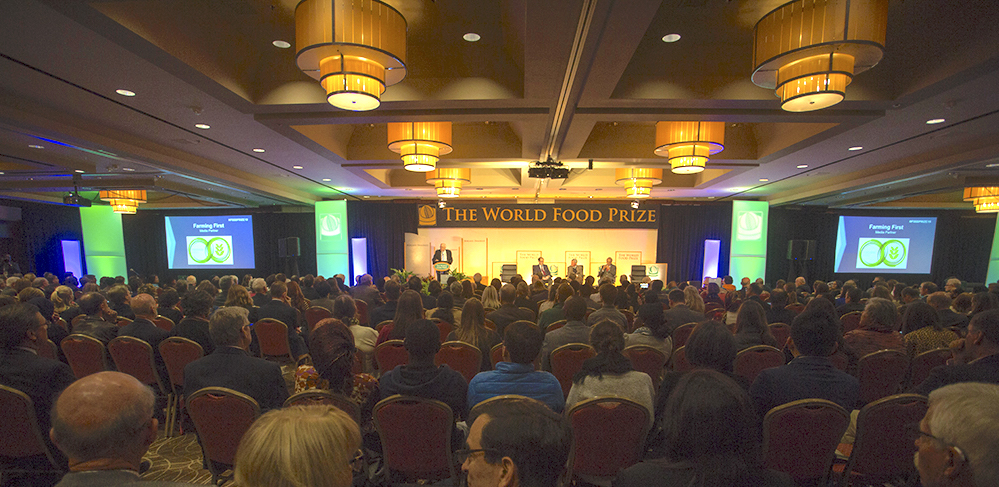

 Climate adaptation and mitigation
Climate adaptation and mitigation 